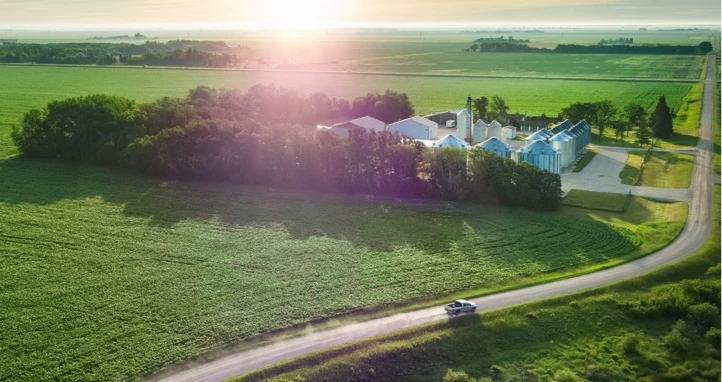Promising hope for on-farm connectivity
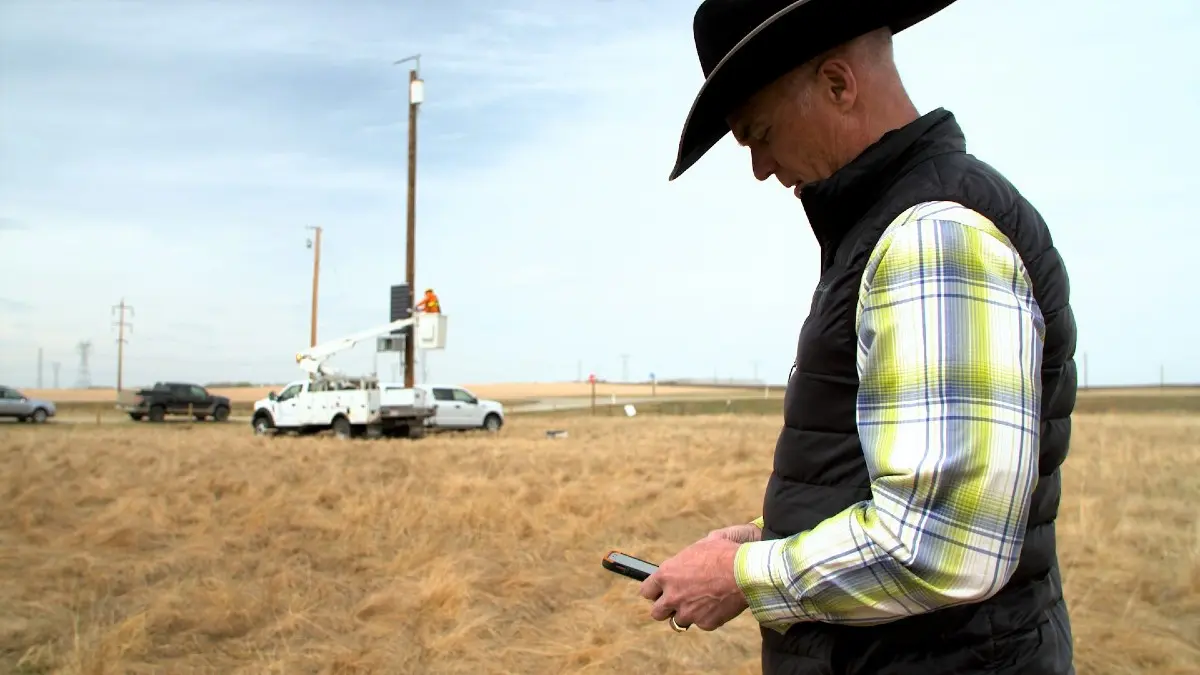
Enhancing rural connectivity, one field at a time. TELUS and Olds College are collaborating on a new rural connectivity innovation that can help enable 5G and agtech adoption.
For Jason Bradley, the four bars at the top of his cell phone screen are essential to his work at the Olds College Smart Farm, a 2,800-acre living lab where students, instructors and industry come together to research and test agtech innovation.
Cellular connectivity determines whether their team can input field data into apps on their phones and tablets, get soil info from field sensors, run their DOT Autonomous Platform to seed and spray fields, or even make a phone call. Most of the Smart Farm is connected, with the exception of a 310-acre dead zone just west of Carstairs, Alberta.
“I often have to jump in my truck and drive towards the highway to call my colleagues,” says Bradley, who manages the Smart Farm’s strategic partnerships. “It’s also a real safety risk to have our farm team out of range while they’re in the field.”
repeater_oldscollege
As part of our ongoing commitment to connect rural communities and provide world-leading connectivity to Canadians, TELUS has partnered with Olds College to test new innovations focused on challenges and opportunities that farmers face daily. Our latest experiment is a field repeater solution that captures and boosts cell signal to extend its coverage to address a dead zone on the Smart Farm in Alberta. It promises game changing connectivity for farmers by laying the groundwork for 5G and agtech adoption, which can enable better on-farm security, efficiency, productivity and sustainability.
Testing the repeater innovation
As part of the five-year strategic partnership between TELUS Agriculture and Olds College, which aims to develop and accelerate agtech innovation in food production and drive better decision making, yields, efficiency and sustainability, it was an obvious choice to research and test new solutions for rural connectivity.
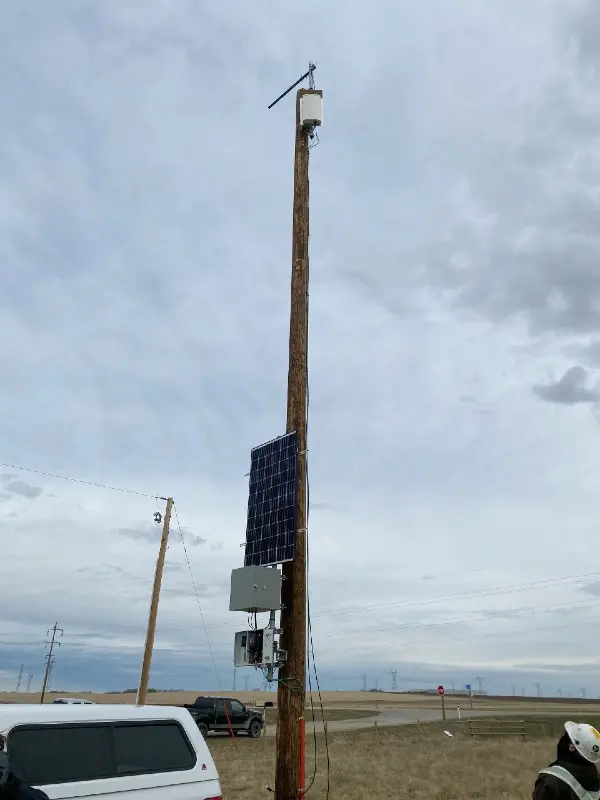
To address the dead zone on the Smart Farm, TELUS set out to build a solution in collaboration with Olds College that was quick to install, easy to maintain and cost-efficient. The result is a repeater, which captures signal from the nearest cellular tower and boosts it to extend coverage. While repeaters aren’t new technology, this particular design is a trial for a solution that, once set up, offers farmers a non-intrusive, solar-powered device that requires no power cable installation or technician service. In the near future, it will be upgraded for 5G connectivity to tap into the speeds, capacity and responsiveness that TELUS 5G offers.
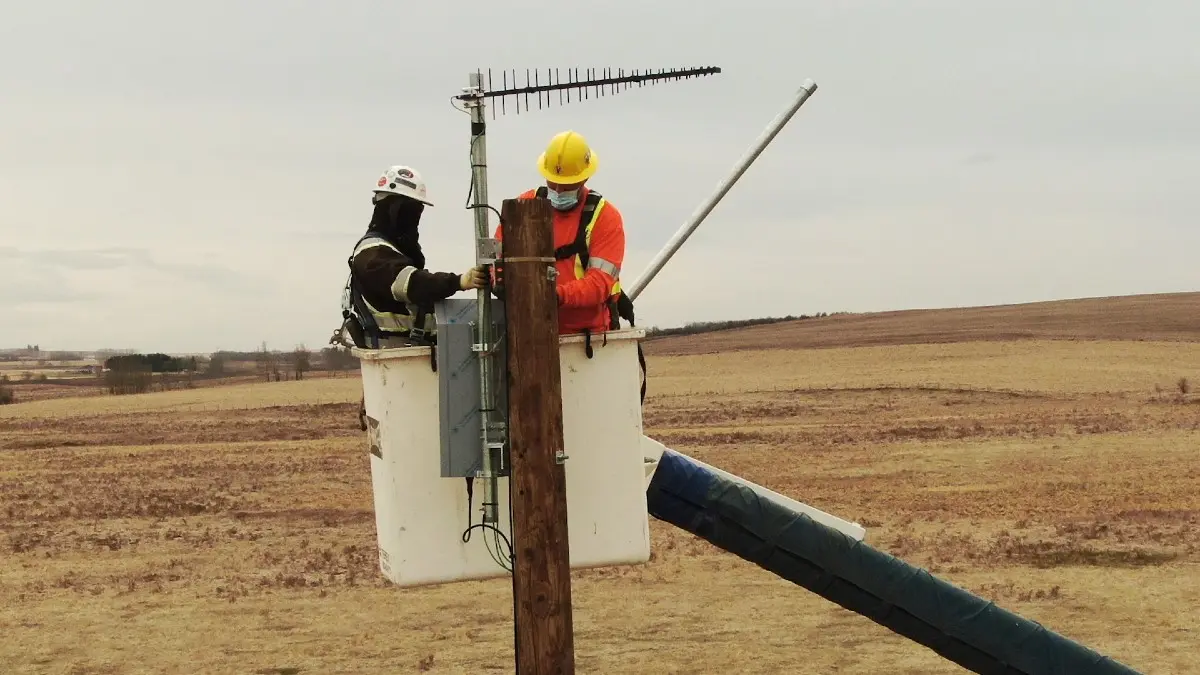
Installed in early May 2021 by TELUS technicians, the Olds College Smart Farm and TELUS teams will test and monitor the repeater over the next year. They’re looking to evaluate the repeater’s ability to provide reliable cellular coverage and the durability of the hardware to withstand different weather conditions with little maintenance.
If successful, the repeater will provide connectivity to mobile devices and agtech like drones, autonomous equipment and field sensors in the area and enable the Smart Farm team to complete their day-to-day research such as monitoring crop nutrients and soil moisture.
Connecting farms and the potential of 5G
The partnership with Olds College is helping TELUS learn how to optimize the benefits of connectivity solutions like the repeater for farms across Canada.
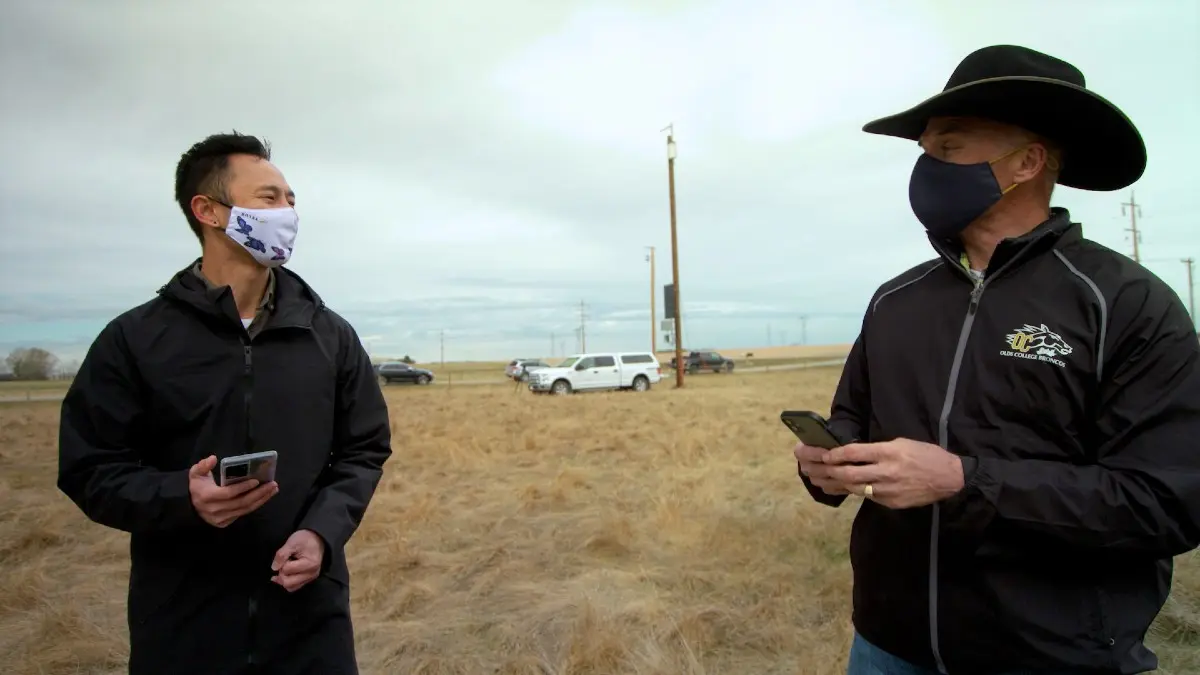
“Being able to bring a solution that’s not only low-cost but quick to deploy would be a game changer for farmers,” says Ray Cheung, Director, Strategic Planning & 5G at TELUS, of the long-term promise of the repeater.
Bradley agrees and likens the innovation to when rural farms got power for the first time – an indication of how indispensable connectivity has become in farming. And it’s only becoming more important. The growing availability of 5G promises to increase network speeds, reliability and capacity, which can in turn encourage greater agtech adoption that can help drive on-farm visibility, efficiency and production levels and fine tune resource and application use for better sustainability.
These connectivity initiatives are part of TELUS’ ongoing commitment to rural connectivity in Canada. Recently, TELUS expanded its next-generation 5G network to Olds, Alberta as part of its larger $14.5 billion investment in Alberta through 2024 to further support the province throughout the COVID-19 pandemic and subsequent economic recovery.

